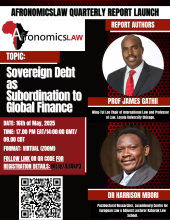The escalating concentration of global extreme poverty is particularly pronounced in Africa, where the continent presently accounts for 55% of the total worldwide poverty. Reports indicate that these numbers are expected to rise due to the enduring impacts of climate change, the COVID-19 pandemic, and the conflict in Ukraine. As we hit the six-year mark before the designated milestone for achieving the Sustainable Development Goals (SDGs), it is apparent that African nations are still notably behind in making substantial strides toward the specific targets outlined in the SDG Agenda.
Expanding upon the United Nations Millennium Development Goals (MDGs), which concluded in 2015, the SDGs underscore the commitment to addressing a broad spectrum of global challenges. The SDG Agenda tackles 17 pivotal development challenges, spanning areas such as poverty, health, gender equality, crucial aspects of economic growth, urgent global warming issues, social justice, and the promotion of peaceful and inclusive societies. Globally, there is a recognition that countries bear the primary responsibility for addressing systemic issues leading to revenue loss, and global cooperation is essential to supporting national efforts in achieving the SDGs.
Within the African context, there have been calls to African leaders to address structural barriers impeding domestic resource mobilization as a key to the successful implementation of development projects aimed at enhancing the lives of African citizens. This is viewed as a sustainable solution to confront the severe and multidimensional nature of poverty in African nations, requiring concerted efforts from leaders to reshape policies that currently facilitate capital outflows.
